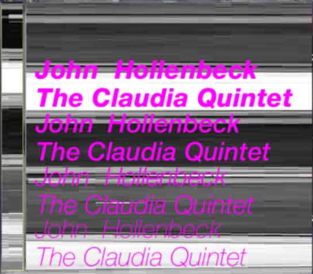Tony Malaby, 'Adobe' (2004)
At the end of Playing Changes is a list: The 129 Essential Albums of the Twenty-First Century (So Far). I organized these by year, and then alphabetically by artist name. I'll be running them down here, in that order. (No one appears more than once as a leader, though there’s ample overlap in personnel.)
Tony Malaby has been an essential tenor saxophonist of this century: a dauntless explorer with no qualms about direct emotional address. His versatility, along with that rarer expressive quality, made him a go-to sideman in the 2000s — with Paul Motian's Electric Bebop Band and Charlie Haden's Liberation Music Orchestra, among others — as well as a reliable catharsis engine on the low-rent New York City club circuit.
Malaby has expanded his rep and his purview since, leading excellent bands like Paloma Recio, whose album Incantations I reviewed in the NY Times a couple of years ago. You may have heard him with pianist Kris Davis, or in Fred Hersch's Leaves of Grass, or with the John Hollenbeck Large Ensemble. Or maybe you haven't heard him yet at all — in which case, have I got an album for you.
Adobe came out in 2004, and while Malaby had been releasing albums for a few years at that point, it was rightly understood as pivotal. I had forgotten about this, but I filed a capsule review for the Philadelphia City Paper at the time, which still captures my feeling:
Primarily known as a first-rate free improviser, Malaby has an introspective side that often gets underplayed. But this release firmly establishes the 40-year-old tenor and soprano saxophonist as a subtle melodist and mood-setter. His horn can be elegiac, as on "Dorotea la Cautiva," or quizzical, as on the winding "Cosas." What never falters is the freshness of his solo excursions. For this, he shares equal credit with his distinguished company. Drummer Paul Motian is jazz's sage of small gestures, capable of painting a canvas with one tap of a cymbal. And bassist Drew Gress reinforces his adept solo and support skills. Together this trio has made an attractively modest statement that should win Malaby converts from beyond his experimental base.
Motian's role is worth expanding on for a moment. He was in his early 70s when he played on this recording, and already a sought-after elder on the scene. Obviously he had already established a genuine rapport with Malaby. But this album is representative of a larger shift, which I discuss in Playing Changes: as musicians like Motian began to age into a phase of eminence, their influence subtly transformed the character of the music at ground level. Listen to the way that his beat, with its patented sort of halting propulsion, informs "Cosas," which is a contrafact of the ageless standard "All the Things You Are." This track could have felt like a throwback gesture. Not with Motian in the mix.
Buy Adobe at Sunnyside Records, or stream it on Spotify or Apple Music.



